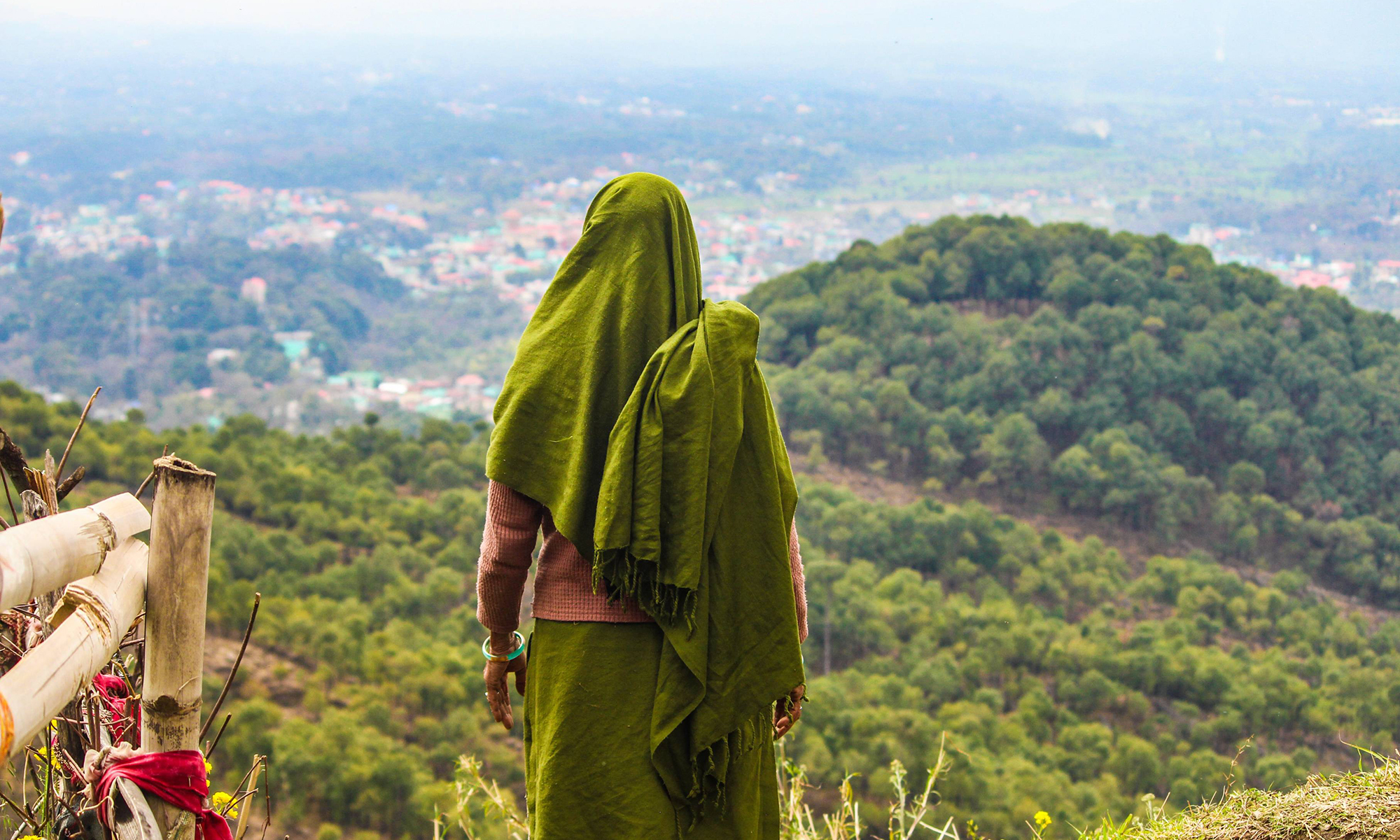24 Sep, 2024
Author: Tanbir Azmi, Communications and Knowledge Management Specialist, IGBP
 © GIZ India/Aashima Negi
© GIZ India/Aashima Negi
According to the Global Gender Gap Report 2024 published by the World Economic Forum, as of 2024, global progress towards gender equality stands at 68.5%, showing only a modest 0.1% increase from the previous year. Amidst this broader disparity, a significant topic that continues to gain attention is the 'eco-gender gap’. But what does this gap mean for environmental sustainability, and why should we care?
The eco-gender gap highlights the differences in how men and women engage with environmental issues. Research shows that women are often more proactive in adopting eco-friendly practices. For instance, a Mintel survey reveals that 71% of women are committed to ethical and sustainable living, compared to 59% of men. Women are also more likely to advocate and adapt to greener choices, such as using eco-friendly products, reducing meat consumption, and embracing reusable items.
The eco-gender gap has far-reaching implications for environmental health and sustainability. Women’s proactive environmental behaviours benefit ecosystems and contribute to health improvements. Here’s a closer look at how women are making an impact in our projects:
.jpg) © GIZ India /Pradnya Thombare
© GIZ India /Pradnya Thombare
Kausalya Devi, a 60-year-old farmer from Erode, Tamil Nadu, exemplifies the positive effects of women’s leadership in sustainable agriculture. Through techniques like inter-cropping and integrated pest management, she enhances biodiversity and reduces farming's environmental footprint. Her efforts to train other women in these methods further amplify the benefits of sustainable farming. Learn more>>
.jpg) © GIZ India
© GIZ India
In Bhitarkanika, women are leading the transition from chemical to organic farming and using their farms as training centers for sustainable practices. In the Sundarbans, women are maintaining mangrove bio-shields, crucial for coastal protection. Women-led Self-Help Groups across India are innovating in wetland management, such as creating handicrafts from invasive water hyacinth, which helps manage wetland ecosystems while providing economic benefits. Learn more>>
.jpg) © GIZ India/Aashima Negi
© GIZ India/Aashima Negi
In Himachal Pradesh, women-led enterprises promote sustainable forest management. Artisans like Hansa use pine needles to create eco-friendly products, reducing fire risks and supporting forest health. Despite challenges like the COVID-19 pandemic, these initiatives highlight the economic and environmental advantages of empowering women in forest conservation. Learn more >>
When both men and women are equally involved, we can expect better results. Women’s eco-friendly actions, such as recycling and reducing plastic use, already benefit the environment. If everyone adopts these habits, regardless of gender, we can make a larger impact on reducing pollution and conserving resources. Furthermore, having diverse perspectives from both genders allows us to address environmental problems from multiple angles, leading to more effective and innovative solutions.
In many cultures, including India, eco-friendliness is often perceived as a “feminine” trait, which can discourage men from participating in environmental activities. For example, recycling and reducing plastic use are sometimes viewed as feminine behaviours, leading men to avoid these actions to align with traditional masculine identities. Challenging these stereotypes is essential for fostering gender-neutral conservation efforts and encouraging broader participation in environmental sustainability.
While our biodiversity projects predominantly involve working with all genders. we recognise the importance of addressing the eco-gender gap to enhance the effectiveness of our initiatives. In line with the Global Biodiversity Framework, we aim to ensure that resources, training, and opportunities are accessible to all genders and are developing outreach programs to better engage underrepresented groups. We also seek to challenge cultural stereotypes that link environmentalism predominantly with femininity, encouraging broader participation in conservation efforts. While recognising that the eco-gender gap reflects wider gender inequalities, we believe that addressing this issue can contribute to more inclusive and effective biodiversity projects. Bridging this gap is an important step towards advancing both gender equity and sustainability.
We would like to hear from you. Write to us by clicking on the feedback button on top.
© 2014 IGBP. All Rights Reserved.
Site By: Virtualpages
